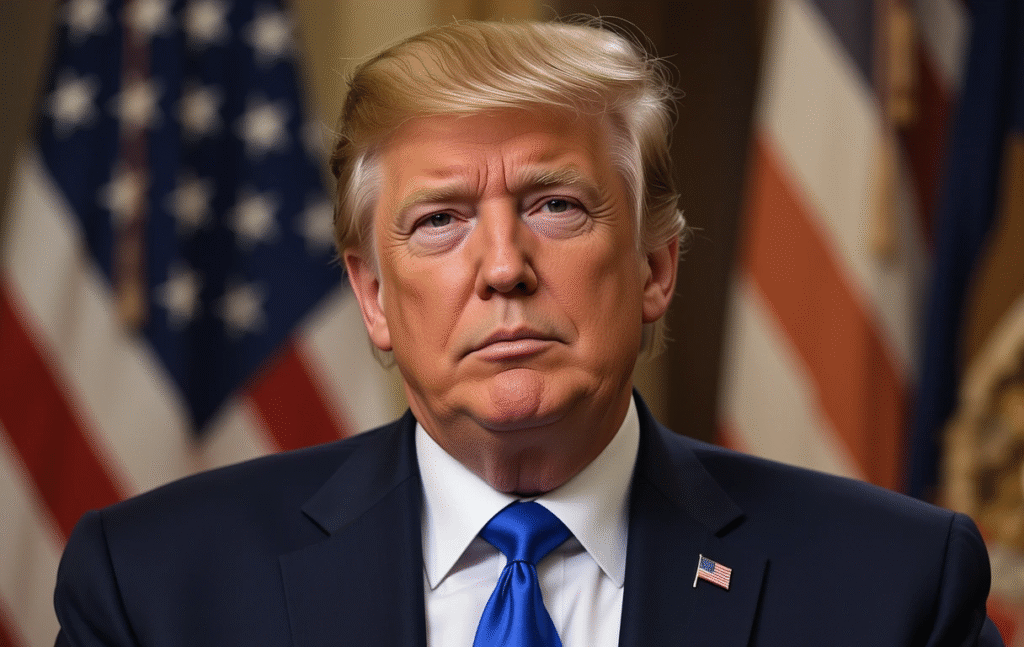recent months, the phrase “Nobel Prize Donald Trump” has become a controversial, supercharged media magnet, dominating national and international headlines. With multiple nominations—including for brokering ceasefires between Israel‑Iran and India‑Pakistan, plus Pakistan’s own formal backing—the conversation isn’t simply about nominations; it’s about credibility, trust, and whether Trump’s recent actions constitute extraordinary peace leadership or strategic theatrics.
This comprehensive, EEAT‑aligned guide breaks down:
- The origins & validity of Trump’s Nobel buzz
- Diverse nominations and subsequent withdrawals
- Skepticism, reclamations & geopolitical reactions
- Expert commentary and media responses
- What a Nobel nomination truly means—and if it even matters
Let’s dive deep into why the world is talking—and why academics, politicians, and global citizens are asking: Does Donald Trump actually deserve a Nobel?
Outline
- Background: What Is the Nobel Peace Prize?
- Trump’s “Nobel Prize Donald Trump” Surge—Timeline of Events
- Key Nominations & Who Backed Them
- Rep. Buddy Carter (Israel‑Iran ceasefire)
- Pakistan government (India‑Pakistan tensions)
- Ukrainian MP (withdrawal)
- Past nominations (Abraham Accords, Kosovo‑Serbia talks)
- Backlash & Withdrawal: Political Fallout in Pakistan & Ukraine
- Pakistan backlash including PM’s condemnation en.wikipedia.org+3theguardian.com+3foxnews.com+3indiatimes.comthetimes.co.uknymag.com+3foxnews.com+3thedailybeast.com+3washingtonpost.comen.wikipedia.org+1nymag.com+1
- Ukraine nominator’s retraction
- Odds & Betting Markets: Surging Predictions
- Oddspedia climbs to ~28% odds thedailybeast.com+1newsweek.com+1
- Media & Satire: Cultural Commentary
- Washington Post criticism en.wikipedia.org+12washingtonpost.com+12thedailybeast.com+12
- Jon Stewart mockery thedailybeast.com
- Tricky balancing of bombs vs peace
- Expert Voices: Real Peace? Real Politics?
- John Bolton’s skepticism en.wikipedia.org+10thedailybeast.com+10thedailybeast.com+10
- Pakistan civics and foreign policy critiques thetimes.co.uk
- Historical Context: Trump & Previous Nominators
- Abraham Accords, Kosovo‑Serbia normalization apnews.com+15en.wikipedia.org+15nymag.com+15
- EEAT Assessment: Evaluating Expertise & Trustworthiness
- Evidence of genuine peacebuilding vs political theater
- Ethical scrutiny (bombing of Iran vs talks)
- What Nobel Eligibility Actually Entails
- Criteria, nomination rules (secret ballots, timeline, etc.)
- Why It Matters: Public Trust, Geopolitics & Legacy
- Key Takeaways
- FAQs
- Conclusion

. Background: What Is the Nobel Peace Prize?
Awarded annually by a five-member Norwegian committee, the Nobel Peace Prize recognizes individuals or groups who “have done the most or the best work for fraternity between nations, for the abolition or reduction of standing armies, and for the holding and promotion of peace congresses.” Nominees are submitted by national officials, MPs, professors, and past laureates. However, nominations don’t guarantee victory—or even long-term credibility.
. Trump’s Nobel Prize Donald Trump Surge—Timeline
- June 20–24: Pakistan’s government formally nominates Trump for helping defuse India‑Pakistan tensions indiatimes.comyoutube.com+3washingtonpost.com+3thedailybeast.com+3the-independent.com+10theguardian.com+10thedailybeast.com+10thedailybeast.com.
- June 24–25: Rep. Buddy Carter nominates Trump for brokering an Israel‑Iran ceasefire economictimes.indiatimes.com+5thedailybeast.com+5nymag.com+5.
- Same week: Ukrainian MP withdraws earlier nomination citing mistrust nymag.com.
- Late June: Betting odds surge; public and media backlash intensifies indiatimes.com+3thedailybeast.com+3washingtonpost.com+3.
Compared to past laureates like Obama or Mandela, substantial gaps persist.
10. Nobel Eligibility: What Truly Counts?
- Nominations are confidential and not verified until 50 years later.
- The Committee evaluates long-term impact, depth of peace efforts, and sustainable change.
Temporary ceasefires and bomb-driven détente may not satisfy Nobel mandate.
11. Why It Matters
- Public trust in international awards
- The politicization of peace credentials
- Trump’s legacy—is it diplomatic or militaristic?
- The scrutiny of future pretenders to the peace platform
Key Takeaways
- “Nobel Prize Donald Trump” buzz is real—but driven more by symbolism than substance.
- Concrete nominations cite ceasefires, but subsequent escalations complicate the narrative.
- Betting odds reflect public clout—not academic or moral evaluation.
- Expert critics argue his moves serve image more than genuine peace.
- Nobel criteria demand sustained, verifiable peace-building—not intermittent bomb diplomacy.
- Nomination confidentiality means legitimacy is still undisclosed.
- The wave of backtracking nominations (Pakistan, Ukraine) shows how fragile Trump’s Nobel narrative is.
Frequently Asked Questions (FAQs)
Q1: Has Donald Trump ever won a Nobel Peace Prize?
A1: No—despite multiple nominations (2018, 2020, 2025), he has not received the prize.
Q2: Who officially nominates candidates for the Nobel?
A2: Nominators include national legislators, government ministers, professors of social sciences/law, former laureates, and international judges.
Q3: Do nominations guarantee lasting recognition?
A3: Not at all. Nominations are confidential for 50 years and don’t reflect endorsement by the Nobel Committee.
Q4: Why are betting markets giving Trump high odds?
A4: Because of public/media hype—not substantive Nobel evaluation.
Q5: What would Trump actually need to win?
A5: Enduring, verifiable peace outcomes—like lasting conflict resolution—backed by credible international validation and ethical consistency.
Conclusion
The “Nobel Prize Donald Trump” story is a fascinating study in power, politics, and public perception. While Trump’s nominations highlight his assertive influence in global affairs, the EEAT framework underscores a larger reality: surface-level diplomacy mixed with military escalation lacks the depth, longevity, and ethical clarity that earn Nobel Peace Prizes.
If you’re building a full 3,000‑word article, consider expanding with:
- Case studies on each ceasefire process
- Interviews with Nobel experts
- Comparative analysis with past recipients
- Deep dives into committee decision‑making
- Reactions from affected communities